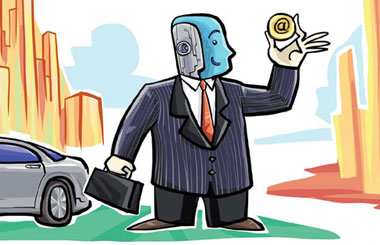Women's public spaces stir controversy
Updated: 2016-05-11 20:32
(Xinhua)
|
|||||||||
ZHENGZHOU -- An elderly gentleman in Central China's Henan province was irritated when the bus he usually takes pulled over sporting a "ladies only" sign.
Since late April, the bus company in the provincial capital of Zhengzhou has operated summer buses for female passengers during rush hours.
Such buses are meant to reduce sexual harassment during the summer, when women often wear skimpier clothing, and to make breastfeeding mothers more comfortable, according to Kong Chaoping, a representative of the bus company.
But Liu Tianhao, a male passenger, worried the "segregation" of passengers based on gender could lead to even greater negative impacts and waste of social resources.
"It's discrimination against men to presume all of us are sexual harassers," a microblogger said on his Weibo account.
Public spaces for women have become increasingly visible in Chinese cities, including more women's restrooms in universities as female students become the majority, and women-only parking facilities.
A shopping mall in central China's Wuhan City assigned 20 parking spaces near the entrance of its underground garage exclusively for female customers earlier this year.
In Shanghai, four unusually large parking spots painted pink appeared at an office building, and intercom systems for emergency calls were installed.
Despite a warm welcome from some women's groups, others expressed dissatisfaction on social media.
"Female drivers can back a car into a parking lot as well as their male counterparts, and I think such facilities are a gross insult to our driving skills," wrote one Weibo user.
Li Yinhe, a well-known Chinese sociologist and sexologist, deemed the female parking spaces unnecessary as well. She said the hidden logic was that "women cannot drive as well as men," even though the facilities were added under the guise of caring.
"Though not as serious as discrimination, women's parking does help to strengthen the stereotype of women as bad drivers," Li said. "As a matter of fact, there are plenty of women with excellent driving skills."
Some believe designating public spaces for women demonstrates courtesy and consideration.
The idea of "ladies first" should be valued in a civilized society, as women are still a vulnerable group in some ways, wrote commentator Yang Lan on news portal rednet.cn. Giving women priority in certain circumstances is justified, Yang added.
"The 'women only' parking lots are not about prejudice, since they are meant to serve certain women with limited parking skills. It is up to the women themselves to decide whether to use them or not, and those who believe in their abilities are free to park their cars in a regular spot," Yang wrote.
Since late April, the bus company in the provincial capital of Zhengzhou has operated summer buses for female passengers during rush hours.
Such buses are meant to reduce sexual harassment during the summer, when women often wear skimpier clothing, and to make breastfeeding mothers more comfortable, according to Kong Chaoping, a representative of the bus company.
But Liu Tianhao, a male passenger, worried the "segregation" of passengers based on gender could lead to even greater negative impacts and waste of social resources.
"It's discrimination against men to presume all of us are sexual harassers," a microblogger said on his Weibo account.
Public spaces for women have become increasingly visible in Chinese cities, including more women's restrooms in universities as female students become the majority, and women-only parking facilities.
A shopping mall in central China's Wuhan City assigned 20 parking spaces near the entrance of its underground garage exclusively for female customers earlier this year.
In Shanghai, four unusually large parking spots painted pink appeared at an office building, and intercom systems for emergency calls were installed.
Despite a warm welcome from some women's groups, others expressed dissatisfaction on social media.
"Female drivers can back a car into a parking lot as well as their male counterparts, and I think such facilities are a gross insult to our driving skills," wrote one Weibo user.
Li Yinhe, a well-known Chinese sociologist and sexologist, deemed the female parking spaces unnecessary as well. She said the hidden logic was that "women cannot drive as well as men," even though the facilities were added under the guise of caring.
"Though not as serious as discrimination, women's parking does help to strengthen the stereotype of women as bad drivers," Li said. "As a matter of fact, there are plenty of women with excellent driving skills."
Some believe designating public spaces for women demonstrates courtesy and consideration.
The idea of "ladies first" should be valued in a civilized society, as women are still a vulnerable group in some ways, wrote commentator Yang Lan on news portal rednet.cn. Giving women priority in certain circumstances is justified, Yang added.
"The 'women only' parking lots are not about prejudice, since they are meant to serve certain women with limited parking skills. It is up to the women themselves to decide whether to use them or not, and those who believe in their abilities are free to park their cars in a regular spot," Yang wrote.
Today's Top News
Beijing police respond to death in custody
Uncertainty over Brexit impacts UK economy: Report
AC Milan starts sale talks with Chinese investors
London's mayor an exception to Muslim ban -Trump
China consumer prices up 2.3% in April
EU anti-dumping moves may damage ties with China
Search widens for leading overseas professionals
60% of career women say no to second child: report
Hot Topics
Lunar probe , China growth forecasts, Emission rules get tougher, China seen through 'colored lens', International board,
Editor's Picks

|

|

|

|

|

|







